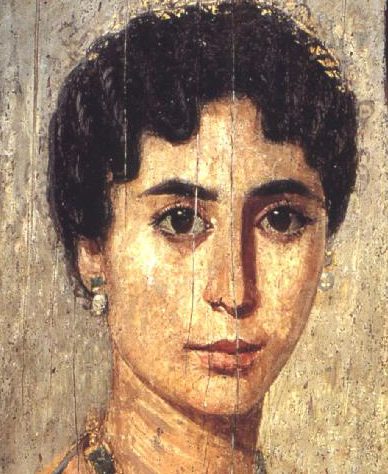Every March, at this time of year, I confess Hypatia. During the season of Lent, when about the 14 and 15 of March we have no saint on our Episcopal Church calendar, I set aside a day for the confession of the sin of those who, in the name of Christ, brutally murdered Hypatia, a leading mathematician of Alexandria in AD 415. She was killed about this time of year, in March, and, like now, it was also Lent. Hypatia was murdered because she was an educated, non-Christian in civic leadership, a friend of the secular Prefect of Alexandria and, most likely, because she was a woman.
I first learned about Hypatia over 20 years ago from a friend who was a math professor. She shared with me the story about this “martyr for mathematics.” Then later, in 2009, I saw this beautiful, if historically inaccurate, movie about Hypatia’s life called Agora. One of the true take aways from the film, although it was downplayed by my friend, is that it was a mob of Christian “monks” who had committed Hypatia’s murder. Her death was documented by her contemporaries and includes the brutal description. Those professing to be followers of Christ dragged Hypatia from her carriage to a former pagan temple that had been converted to a church (the Alexandrian Caesareum). They stripped her and cut her with shards, either oyster shells of roof tiles (ostrakois aneilon, the Greek could mean either).
I don’t want to oversimplify. In AD 415 the times and politics had cultural complications different than our own, brutal violence was a common tool on all sides, sacred and secular. Faction riots were common fourth/fifth-century Alexandria. Jews killed Christians, Christians killed Jews, and the Roman governors tortured and killed opponents of the empire. In this late fourth-century city of Alexandria, the newly arrived Christian Patriarch Cyril was edging for political power over Orestes the Roman Prefect. Although a baptized Christian himself, Orestes promoted the more “secular” values of Rome in the city. History leaves us the distinct impression that Cyril used mob violence as his weapon of choice in that power struggle, as others did.
As near as I can tell from the primary sources, Hypatia herself, unlike others in Alexandria, was non-violent. As a well-educated woman of science, and a teacher of some of the brightest minds of that generation, she likely encouraged forbearance, reason and dialogue. Throughout Alexandria’s conflicts of the late fourth early fifth century she would have been a moderate voice of counsel in a violent, divided city.
The movie Agora conjectures that Hypatia had discovered, through mathematics, that the earth goes around the sun. Perhaps. Because of Christian violence we may have been set back 1,000 years in understanding the nature of God’s world around us. Perhaps. What the world lost in Hypatia may have been equivalent to the loss of the library of Alexandria when it burned. Perhaps. But what I am acutely aware of what we truly lost that day in March, 415: in the brutal murder of one of the brightest women in history we lost our Christian dignity. The violent murder Hypatia bears witness against those who claim to follow the Prince of Peace. We mourn for Hypatia and we mourn for our loss of what the crucified one came to show us. The ways of the world, violence and mob murder, are not the ways of Christ. Yes, Christians have been active and complicit in violence and oppression at many times in our history but this early pagan martyr sits on the cusp of what many Christians look to as the beginning of the flowering of Christendom. This is a romantic period for some who want to see the early centuries of the Church with rose colored glasses. Perhaps with good reason St. Benedict saw a vital need for a drastic reformation of Christianity later in that same fifth century. Cyril of Alexandria is remembered as a saint in some parts of the Christian world. Hypatia is all but forgotten, except by those educated few who remember. Check them out on Wiki here and here.
This month, these couple of days, I confess that we Christians have a history of violence and all too often murder the voice of reason in our midst, especially when it comes from outside our circle of culture, comfort or understanding. We have a history of being just like the world in power struggles. We see such unthinking, unChristian violence still done today in the name of those who profess to follow Christ. I confess so that we may own our sin and make a different way going forward. We’ve done this before.
I confess our participation in murdering reason in our midst. I confess to silencing the educated voices that are actually trying to help bring order to our disordered hearts and minds. I confess a lack of seeing beyond our own limited Christian lens and failing to see the common humanity of in my sister and brother no matter how foreign they seem. As our master has taught us, we have not turned the other cheek, we have not shown Baptismal maturity. I ask God’s forgiveness and that of non-Christians for not having shown the face of Jesus Christ. I confess Hypatia.


